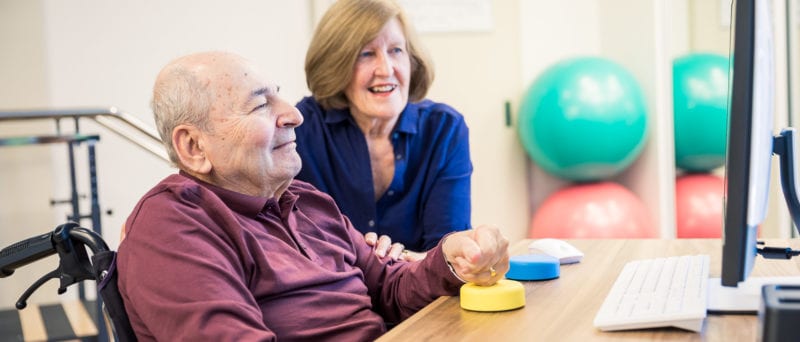What is Parkinson’s?
Parkinson’s Disease is a condition where nerve cells in the brain gradually deteriorate and die. This occurs in a region of the brain which produces dopamine, a chemical that is responsible for the control of muscles and movement.
Dopamine levels deplete as we get older but in Parkinson’s Disease this happens at a much faster rate. Symptoms of PD manifest when 60-80% of the dopamine-producing cells are damaged and this usually occurs after the age of 65 but in about 20% of cases this can be earlier.
Am I at risk of Parkinson’s?
We don’t know the exact causes of Parkinson’s, however researchers believe that risk factors involved with developing PD:
- Exposure to environmental toxins: pesticides and herbicides, for example, can inhibit dopamine production
- Not enough antioxidants, which normally protect cells from stress and damage
- Family history is a risk factor in a small number of cases
- Head trauma
What are the signs to look out for in myself or loved ones?
Not everyone will experience all the symptoms of Parkinson’s, and if they do, they won’t necessarily experience them in quite the same order or at the same intensity
The most well-known indicator of Parkinson’s disease is a resting tremor or shaking. This usually is observed in one arm.
As the condition progresses you may identify muscle stiffness, slowness of movement, stooped posture, balance problems, increase in falls and difficulty initiating movements such as walking or standing from a chair.
Can I protect myself from getting Parkinson’s?
Whilst you we don’t currently know how to stop PD occurring, we do know how to slow it down or limit its impact. Medication can provide symptomatic relief, however it not currently able to protect dopamine producing cells from being damaged.
The following behaviours are recommended in early PD:
- Consuming a diet high in antioxidants
- Regular high intensity exercise (especially aerobic and activities that require concentration)
- Managing stress
- Getting a good sleep at night
How can Physiotherapy help?
Physiotherapy is very important in the long-term management of PD.
In the early stage of the disease, Physiotherapy works by teaching your brain how to re-wire itself using a concept known as neuroplasticity. It is very important for the physiotherapy program to be intensive for this to work.
In later stages, Physiotherapists can also teach you how to maintain functional independence by teaching movement strategies to compensate for the challenges you may experience with movement such as managing falls, freezing, and difficulty with daily activities.
Throughout the journey of the condition Physiotherapy can also help to mobilise joints that become stiff (especially in the trunk) and help to improve flexibility of tight muscles.
When should I see a Physiotherapist?
You should arrange to consult with a physio as soon as you are first diagnosed, to come up with an appropriate physiotherapy plan. It is nice if you can find a therapist you are comfortable with to work with you throughout your PD journey.
Please contact Concentric on 1300 148 160 or email support@concentric.com.au to ask about our Parkinson’s Disease specific exercise programs.



